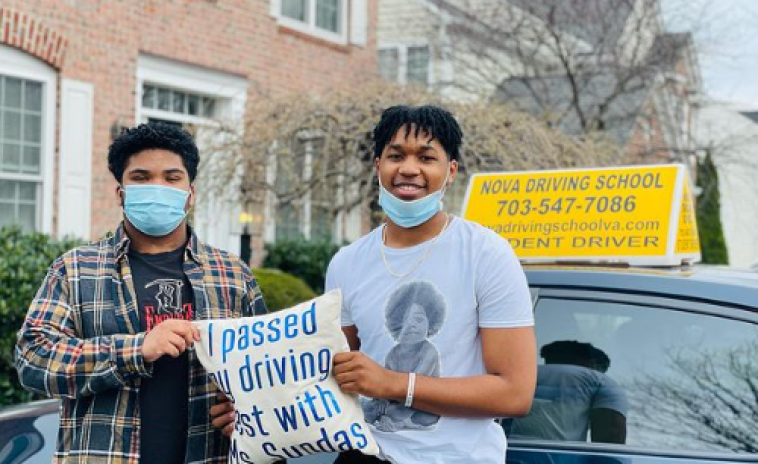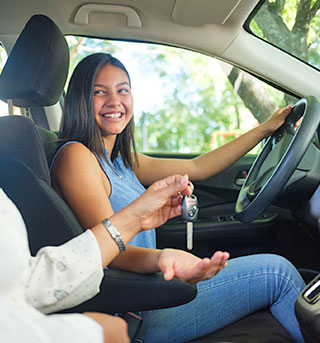Preparing for the DMV Virginia Road Test: Your Ultimate Guide to Success

If you’re planning to obtain your driver’s license in Virginia, one of the most important milestones is passing the DMV Virginia road test. This practical exam assesses your ability to drive safely on public roads and demonstrate your understanding of road rules. It’s an essential part of the process that requires proper preparation. In this guide, we will walk you through the steps to help you succeed in the DMV Virginia road test and how to navigate the DMV appointment road test process.
What is the DMV Virginia Road Test?
The DMV Virginia road test is a practical examination conducted by the Department of Motor Vehicles (DMV). It is designed to evaluate your driving skills and ensure that you can operate a vehicle safely in various road conditions. The test focuses on your ability to perform essential driving maneuvers, follow traffic laws, and make responsible decisions behind the wheel.
The DMV Virginia road test typically lasts about 20 to 30 minutes and includes tasks such as parking, lane changes, turning, stopping at intersections, and controlling the vehicle in real-time driving situations. You’ll need to demonstrate that you can drive safely in different environments, including busy streets, intersections, and highways.
How to Schedule Your DMV Appointment Road Test
Before you can take the DMV Virginia road test, you must schedule an appointment. The DMV allows you to book a DMV appointment road test online or by calling your local DMV office. It’s important to schedule your appointment well in advance, as available time slots can fill up quickly, especially during peak seasons.
Here’s a step-by-step guide to scheduling your DMV appointment road test:
- Ensure Eligibility: Before scheduling your test, make sure you meet the eligibility requirements. In Virginia, you must hold a valid learner’s permit for at least 9 months if you are under 18 years old. If you’re 18 or older, the requirement is more flexible. You should also have completed any required driver education courses if you’re under 19.
- Choose the Right DMV Location: You can schedule your DMV Virginia road test at any DMV office that offers road tests. Be sure to choose a location that is convenient for you and offers available test times. Use the DMV’s online tool to check available time slots at your preferred location.
- Prepare the Necessary Documents: When scheduling your DMV appointment road test, make sure you have all the required documents, such as your learner’s permit, proof of identity, proof of Virginia residency, and any other required documents. You will need to bring these to your road test appointment, so it’s essential to have them ready.
- Confirm Your Appointment: Once you’ve chosen a time and location, confirm your DMV appointment road test. You will usually receive a confirmation email with the details of your appointment. Make sure to arrive on time and prepared on the day of your test.
What to Expect on the Day of the DMV Virginia Road Test
On the day of your DMV Virginia road test, you should arrive early to avoid any last-minute stress. Here’s a breakdown of what to expect during your road test:
- Vehicle Check: The first thing your examiner will do is inspect your vehicle to ensure that it meets the safety requirements. Make sure your vehicle is in good working order, with functioning lights, brakes, and signals. If there are any issues with the vehicle, you may be asked to reschedule your test.
- Vehicle Control: Once the inspection is complete, the examiner will give you instructions to drive. You’ll need to show that you can control the vehicle and drive safely in different traffic situations. The examiner will guide you through the test, instructing you to make specific maneuvers such as turns, lane changes, and stops.
- Maneuvers: The DMV Virginia road test will include a variety of tasks, such as parallel parking, turning at intersections, three-point turns, and merging onto highways. You’ll be evaluated on how well you perform these maneuvers, including your ability to check mirrors, signal, and drive within speed limits.
- Real-Time Driving: During the road test, you’ll also be asked to drive through different environments, such as residential streets, busy intersections, and highways. The examiner will assess your ability to navigate through these situations while obeying all traffic laws.
- Ending the Test: Once the examiner has observed your driving skills, the test will come to an end. They will either provide feedback and inform you whether you passed or failed the test. If you pass, you’ll be given instructions on how to obtain your driver’s license. If you don’t pass, you will be provided with feedback and information on how to retake the test.
Tips for Passing the DMV Virginia Road Test
To increase your chances of passing the DMV Virginia road test, follow these helpful tips:
- Practice Regularly: The more practice you get behind the wheel, the more confident and skilled you’ll become. Spend time practicing essential maneuvers like parallel parking, lane changes, and turning at intersections. Make sure to practice in a variety of road conditions and traffic situations to simulate what you might encounter during the test.
- Know the Road Signs and Laws: While the DMV Virginia road test focuses on your driving skills, it’s still important to understand traffic laws and road signs. Make sure you know the rules of the road and can recognize signs that indicate speed limits, stop signs, and other important traffic signals.
- Stay Calm and Focused: Nerves can sometimes get in the way of performing well during the DMV Virginia road test. Stay calm and focused throughout the test. Listen carefully to the examiner’s instructions and take your time to perform each maneuver to the best of your ability.
- Use a Comfortable Vehicle: If possible, use a vehicle that you are comfortable driving during the test. Being familiar with the vehicle’s controls will make it easier to focus on the road and complete the tasks smoothly.
- Arrive Prepared: On the day of your DMV appointment road test, make sure to arrive early, bring all required documents, and have your vehicle ready for inspection. Being prepared will help you feel confident and ready for the test.
Final Thoughts
The DMV Virginia road test and DMV appointment road test are key steps in the process of obtaining your driver’s license. By scheduling your appointment in advance, preparing thoroughly, and practicing your driving skills, you can increase your chances of success. Remember to stay calm, follow the examiner’s instructions, and demonstrate your ability to drive safely and responsibly on the road. With proper preparation, you’ll be one step closer to earning your driver’s license in Virginia. Good luck!








